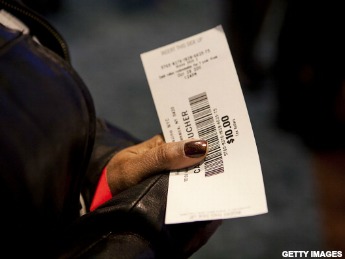Phyllis Kahn is a practical person. She sees pull-tab machines in dimly lit bars throughout the state of Minnesota and wonders why this form of gambling is good while sports betting is a problem. She looks across the country and wonders why sportsbooks are perfectly legal in Las Vegas, while in Minneapolis -- which she serves in the Minnesota House of Representatives -- sports betting is pushed underground.
Kahn believes this uneven distribution of permission has cost her district certain opportunities. And those opportunities start and end in the same place.
"The benefits," says Kahn, "are money."
Although Kahn does enjoy baseball, she's not a sports fan -- she refers to NBA commissioner Adam Silver only as "the new head of the basketball league." Rather, her interest here is purely financial: She sees sports betting as a way to boost her district's economy, collect taxes on the gambling activity and defray some of the significant sports-related expenses her state has taken on in recent years.
Currently under construction in Minneapolis is a new football stadium that will be the home of the Minnesota Vikings. The $1 billion venue is projected to open in 2016, and it has already drawn big events for the city, including the 2018 Super Bowl and the 2019 NCAA men's Final Four.
But locals have paid a steep price for this crown jewel: The city is putting up $150 million for the project, and the state of Minnesota is spending another $348 million.
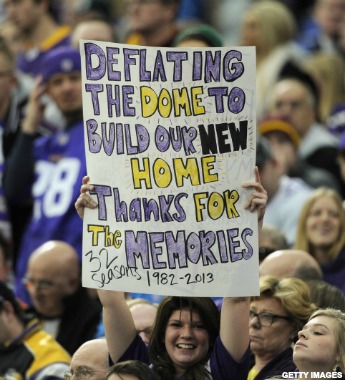
That's a lot of money, and recent constructions of a new Major League Baseball stadium and college football stadium have only increased the state's sports-related expenditures. But legalized gambling on sports could go a long way toward covering some of the expenses communities take on in the name of their beloved teams.
"I just saw recently that it’s estimated that $3.8 billion is bet illegally on the Super Bowl, and only 100 million is bet legally," Kahn says. "That’s an awful lot of money. My theory is that people much prefer to do things legally than to do them illegally."
Today, sports gambling is accessible from every computer. And since it isn't condoned in America -- the online gambling outfits are based outside of the United States -- those funds aren't tracked or taxed. Considerable tax benefits could come from legalizing and regulating sports gambling, but a federal law prohibits this in Minnesota and almost every other state.
Kahn is hoping to change that. A bill she submitted last month to the Minnesota House of Representatives proposes to legalize sports betting in the state of Minnesota. This isn't the first time Kahn has made such a move, but she's hopeful that her peers are more receptive to the idea.
Kahn believes a shift in attitudes has taken place, spurred on in part by Adam Silver's candor in starting a national dialogue on sports gambling. Kahn is under the impression -- her contacts include a Las Vegas banker who deals primarily with casinos -- that the NHL, MLB and NFL will eventually follow suit. The NFL is particularly important to the equation, since the league has long opposed sports gambling -- even to the point of actively campaigning against legalization efforts.
Decreasing resistance to current practices stems from a growing recognition that a complete sports gambling ban is antiquated. The bill that expressly prohibits sports betting in most of the United States was signed into law in 1992.
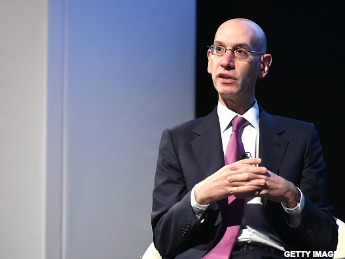
Since then, the Internet has changed everything. Anyone who wants to make wagers on sporting events can do so online through any number of gaming sites. Illegal online betting is a multi-billion-dollar industry -- and neither the sports leagues nor the IRS are seeing a dime.
But there could be more incentive for leagues to embrace legal, regulated sports gambling. Gambling has the potential to positively impact the integrity of the game along with the fan experience -- even the experience of fans who do not actively gamble.
Silver's public comments on gambling have always seemed to center around the need for appropriate regulation. In November, he wrote: "Congress should adopt a federal framework that allows states to authorize betting on professional sports, subject to strict regulatory requirements and technological safeguards."
David Stern, who preceded Adam Silver as NBA commissioner for 30 years, was once a very vocal opponent of legal sports gambling. Now, he feels differently. "If it's going to happen ... you should make it legal and you should regulate it as tightly as you possibly can," he said on CNBC last month.
As it currently stands, sports betting -- the illegal kind -- is almost certainly altering the outcome of a small portion of games. In a 2006 research paper titled, "Exposing Cheating and Corruption," University of Michigan economist Justin Wolfers examined more than 44,000 college basketball games during a 16-year span. He found an interesting trend: While the favored team in a given game beat the spread exactly 50.01 percent of the time, heavy favorites -- teams with more than a 12-point advantage, according to the spread -- "covered only 48.37 percent of the time, a statistically significant deviation."
The discrepancy isn't enough to conclusively state that point-shaving was altering the outcomes of games. But Wolfers -- a former bookie's apprentice -- does believe that as many as 1 percent of those games were fraudulently affected to alter their outcome.
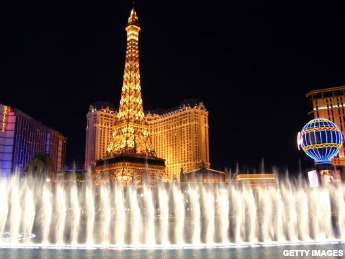
Corruption is an inherent risk of sports, and both players and referees have long been tempted with financial compensation for deliberately affecting game outcomes. It would seem likely that gambling exacerbates that risk. But when gambling is legal and regulated, the opposite may be true.
Stefan Szymanski, who like Wolfers is an economist at the University of Michigan, believes that legalization actually makes cheating less likely. Legal, regulated bookies are far less likely to fix matches than illegal bookies, Szymanski explained recently to The New York Times Magazine. They face much greater consequences for doing so, and the reward simply isn't worth it, in many cases.
Legalizing bookies reduces the pool of illegal bookies. But it also gives those regulated parties a legal form of recourse if they do believe a game has been fixed -- and those bookies, ever vigilant of their bottom-line, would place even more trained eyes on each game.
Illegal bookies, meanwhile, have no such options when they believe they have been wronged by a fixed game. And such elements put the welfare of legal bookie operations at risk, because if customers believe the games are fixed, they won't be so eager to place a bet -- and bookie revenues will dwindle fast.
There are opponents who suggest that legalized gambling will only increase the market for corruption. Legal sports betting, they say, will invite corrupt parties to find new methods of cheating.
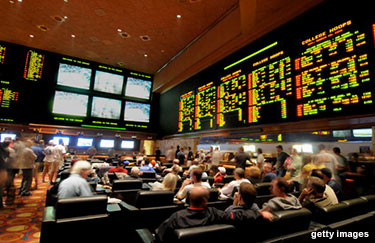
The criticism does seem fair. It's probably why Silver and other sports figures almost never mention gambling without discussing its need for regulation. They're making a bet themselves, that they can help construct a system of regulation that at least reduces the risk of game-fixing. They may not catch every instance, but that's the same situation they find themselves in now -- only in their current situation, there are far fewer leads to help them track down fraudsters.
The other chief criticism, and one currently deployed against Kahn's efforts in Minnesota, has to do with the type of people that gambling draws its profits from. One outspoken critic from the Minnesota Freedom Foundation likened Kahn's proposal to a "tax on the poor" -- in other words, sports gambling would draw its revenues from low-income individuals and families, further impoverishing them.
Kahn doesn't say the criticism is wrong, but she is quick to point out a double-standard: Certain forms of gambling are legal in Minnesota and have been for years, and they are accessible to individuals of all income levels. Pull-tab gaming is an important source of tax revenue for the state, and it functions in the same way sports gambling would among the public -- except that pull tabs are legal and largely uncontested.
In fact, pull-tab gaming isn't only legal -- it's being used as a way to cover spending gaps. The state of Minnesota has already voted to expand the presence of pull-tab gaming in the state as a way of funding the new football stadium construction -- and that, Kahn argues, is the same kind of "tax on the poor" that has her opponents so riled up.
"They're already drawing taxes from pull-tab machines in cheap bars," she says. "If they're worried (about taking money from the poor), and they should remove those machines."

